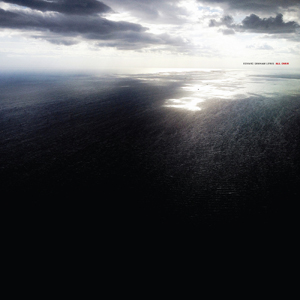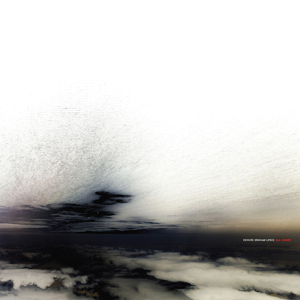 Since the reformation of Wire in the early 2000s, solo and side projects from Colin Newman and Graham Lewis have been scant to say the least, with only the occasional odd release or compilation song to be heard. Therefore, the announcement of not just one, but two new Lewis albums immediately grabbed my attention, and immediately made me wonder how they might differ being issued as true solo albums (as opposed to as He Said or Hox). Featuring assistance from collaborators including Thomas Öberg (27#11), Andreas Karperyd (He Said Omala, Hox), and Paul Thomsen Kirk (Akatombo), the results were certainly worth the wait, and make for the perfect culmination of his work to date.
Since the reformation of Wire in the early 2000s, solo and side projects from Colin Newman and Graham Lewis have been scant to say the least, with only the occasional odd release or compilation song to be heard. Therefore, the announcement of not just one, but two new Lewis albums immediately grabbed my attention, and immediately made me wonder how they might differ being issued as true solo albums (as opposed to as He Said or Hox). Featuring assistance from collaborators including Thomas Öberg (27#11), Andreas Karperyd (He Said Omala, Hox), and Paul Thomsen Kirk (Akatombo), the results were certainly worth the wait, and make for the perfect culmination of his work to date.
Even at a quick spinning, it makes sense for these to be released as two distinct albums as they differ so significantly from each other.All Over is the more accessible of the two, and could easily have been branded a He Said release and sit nicely alongside Hail and Take Care.Like that project's peak era, it is his use of conventional, largely electronic instrumentation in unconventional arrangements that lead to a sense of dissonance, but never straying far from memorable pop hooks.Just like "ABC Dicks Love" and "Could You?" were fascinating bits of off-kilter synth pop with Lewis' eternally smooth vocals leading the way, "Straight into The Corner" has a modernized electronic feel in its stabbing percussion and slightly disjointed melody, given extra momentum by his vocal performance.
The rapid, danceable beat that underscores "The Start of Next Week" keeps things up-tempo amidst more chaotic passages and heavy vocal processing.Catchy but frenzied, he overall sound is reminiscent of the brilliant 27#11 single from a few years back. Some more contemporary IDM sounds and production appears on "Bluebird" but in a slower, moodier progression overall.
"We've Lost Your Mind," released as a teaser a few months ago, also conjures feelings like another throwback to times past.Its loose, poppy structure and tastefully prominent synth sequence sounds like something that would appear if Wire's A Bell is a Cup was recorded this year.Closing song "Passport to International Travel" ends the album on a high, frenetic note.With a punky exuberance and a rapid tempo, it is an undeniably energetic and fun song, with a youthful energy that solidifies the fact that Edvard Graham Lewis is the coolest 61 year old on Earth.
samples:
 The companion album, All Under, takes a far more abstract direction in comparison, for the first half dropping the beats and vocals for dissonant electronic textures and odd effects in an overall sound that fits well with the more difficult Dome moments with Bruce Gilbert."All Under (Film Score)" drifts from an industrial scrape to a modular synth twinkle into pure DSP crunch in just under six minutes; all the more impressive considering it was recorded live with just a sampler and effects.The "All Under (Installation Loop)" version is significantly longer and more skeletal, at first hollow and drifting, then mixed with sharper feedback and pinging electronics that upset things nicely.
The companion album, All Under, takes a far more abstract direction in comparison, for the first half dropping the beats and vocals for dissonant electronic textures and odd effects in an overall sound that fits well with the more difficult Dome moments with Bruce Gilbert."All Under (Film Score)" drifts from an industrial scrape to a modular synth twinkle into pure DSP crunch in just under six minutes; all the more impressive considering it was recorded live with just a sampler and effects.The "All Under (Installation Loop)" version is significantly longer and more skeletal, at first hollow and drifting, then mixed with sharper feedback and pinging electronics that upset things nicely.
Graham takes the remaining half of the album in even odder directions."The Eel Wheeled" is a spoken word piece:a surrealist tale of espionage backed by Lewis' heavy mangling of a standard sound effects library, with a second half that progressively becomes unhinged in the most brilliant way.The lengthy "No Show Godot" has some hints of the sound that defined All Over, but in a sprawling, 18 plus minute expanse.Initially opening as drifting ambient piece with a slight acerbic edge to it, it becomes more abrasive via stuttering passages of noise that ends up locking into an oddly skewed rhythmic structure.This moves into an overt, electronic drum circle type pounding and mostly untreated vocals.
Given the length of time since the last full-fledged solo release from Graham Lewis, I had high expectations for All Under/All Over.Considering the fact they were recorded over the past decade, it makes sense that these two cover the gamut of his previous styles as a series of ideas and snippets that benefited from the time Lewis took to polish and expand.With one half encompassing dissonant and experimental electronic music that has a uniquely powerful penchant for pop hooks and memorable vocals, and the other hinting back to his earliest experiments with music and noise, the two albums are inseparable sides of the same coin. They both also clearly show that nearly 40 years into his career, Graham Lewis is an artist unlike any other in the quality and uniqueness of his work.
samples:
 
Read More

